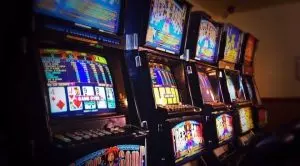 December turned out to be a dynamic month for the Australian gambling sector. Considering the rapid growth of international gambling operations in recent years, analysts believe that the trend would continue in the near future, and Australia would not be left unaffected.
December turned out to be a dynamic month for the Australian gambling sector. Considering the rapid growth of international gambling operations in recent years, analysts believe that the trend would continue in the near future, and Australia would not be left unaffected.
Unfortunately, the gambling participation rates of Australian citizens, who have been reported as the biggest gambling spenders on a global scale, has raised the risks of an increase in problem gambling rates, as well. On the other hand, the lack of diligent regulation enforcement in the country has been pointed as one of the main reasons why gambling addiction rates in the country have been rising rapidly over the past few years.
Lately, the Prime Minister of the country, Mr Scott Morrison, has been calling for more action in order to make sure local people are well-protected against gambling-related harm. This month, the country has seen some important issues finally addressed in a more suitable way.

National Self-Exclusion Register Presented as Part of a New Gambling Bill
 According to recent statistics, about 80% of Australians engage in a certain form of gambling. The result has shown the highest rate of any country on a global scale. Of course, not all Australian gamblers could be classified as gambling addicts, but reports show that the number of problem gamblers is on the rise.
According to recent statistics, about 80% of Australians engage in a certain form of gambling. The result has shown the highest rate of any country on a global scale. Of course, not all Australian gamblers could be classified as gambling addicts, but reports show that the number of problem gamblers is on the rise.
So far, Australia does not have any restrictions on online gambling at the player level. This basically means that anyone can use any gambling site and place a bet. The easy accessibility and convenience which online gambling offers allows gamblers place bets whenever they want, wherever they are.
For some time now, Prime Minister Scott Morrison has been pushing for the establishment of a National Self-Exclusion Register in order to offer local people the chance to ban themselves from gambling. So finally, the beginning of the month saw the Australian Parliament approve a piece of legislation to establish the proposed register, with the Government describing the measure as an important step forward for the country to address rising levels of harm that compulsive gambling has inflicted to local people.
A bill under which the above-mentioned self-exclusion system is introduced, as well as a companion piece of legislation introducing a tax that will be used to cover the expenses of the new piece of legislation, have been passed by the Senate and the House of Representative. As part of the Interactive Gambling Amendment (National Self-Exclusion Register) Bill 2019, the Australian Communication and Media Authority (ACMA) would be responsible for the monitoring and control of the register.

Another Bill to Distribute Self-Exclusion Database Management Responsibilities
 A special body would have to be engaged in managing the self-exclusion database that would prevent licensed online betting operators from getting back in touch with individuals who have decided to ban themselves from gambling. In addition, information for players who register for self-exclusion must not be disclosed by operators in relation to any marketing purposes.
A special body would have to be engaged in managing the self-exclusion database that would prevent licensed online betting operators from getting back in touch with individuals who have decided to ban themselves from gambling. In addition, information for players who register for self-exclusion must not be disclosed by operators in relation to any marketing purposes.
Under the new rules, gambling companies which continue to target self-excluded players with their marketing materials or allow such players to register a new account with them could face fines of between 60 and 180 penalty units. These are fines that vary in value depending on the state where the offence occurs and are generally worth no less than AU$100 per unit.
An accompanying bill is also to be brought into action. Under that piece of legislation, the ACMA will be required to determine the levy applicable to each license holder.
According to the Parliament, the two bills would make sure that the Australian Government is empowered to check whether or not the local gambling sector complies with the National Self-Exclusion Register and provides funding for it. Anne Ruston, who serves as Minister for Families and Social Services, explained that the implementation of the register would make it possible for Australians to ban themselves from all licensed online gambling services in the country quickly and easily by making one registration only rather than filing a request to for self-exclusion with every iGambling services provider.
According to expectations, such a step would fill in the gap in consumer protection in the Australian gambling market, especially when it comes to the services offered online. The implementation of the Self-Exclusion Register is also believed to lead to the reduction of the harm that online gambling could inflict to most vulnerable people.
- Author


